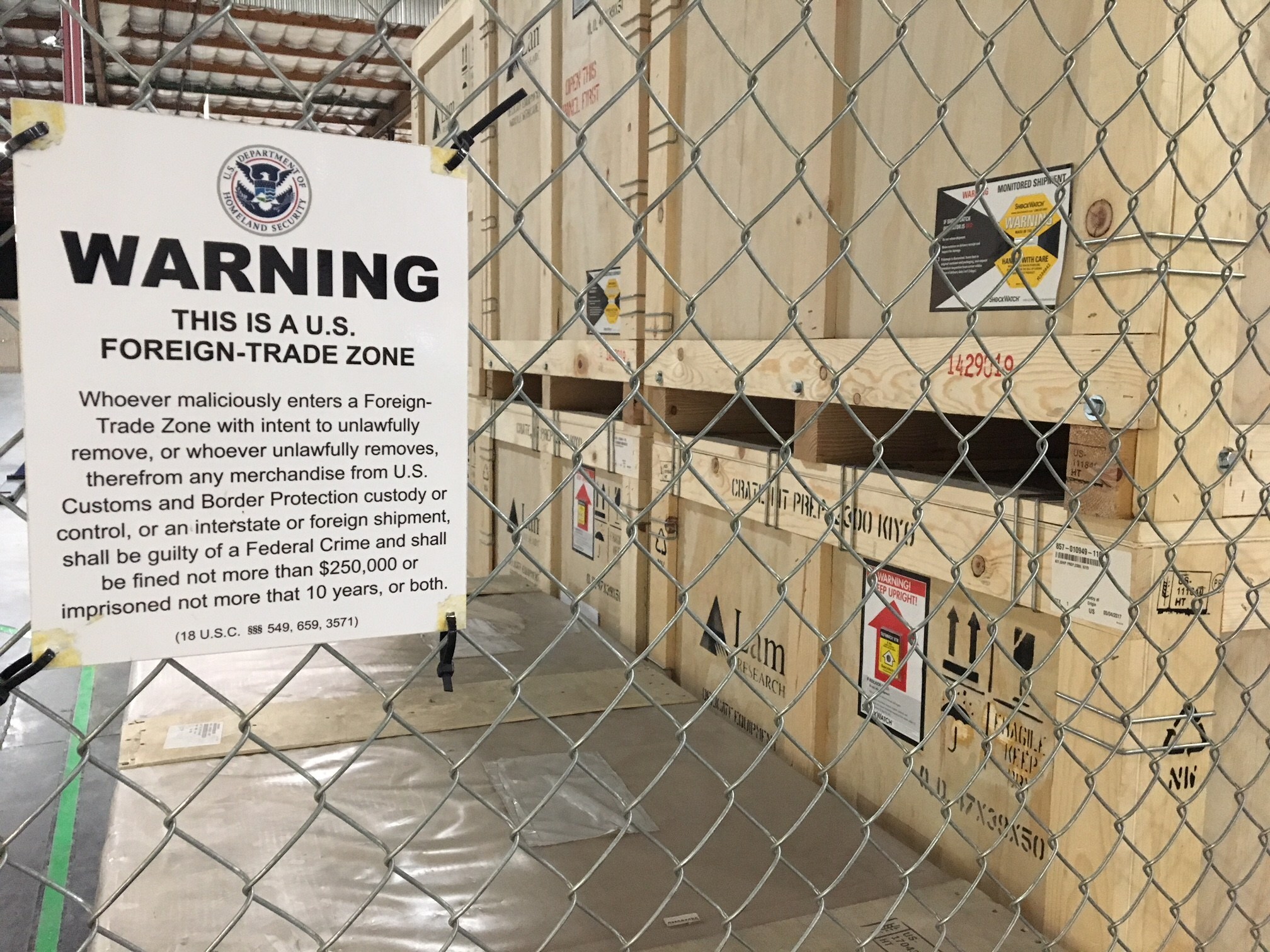More Post from the Author
- Zillow and Google bring home-buying guidance to NotebookLM
- Redwood Software redfinit l'observabilit de l'automatisation avec Redwood Insights Premium
- Liftoff Announces Confidential Submission of Draft Registration Statement for Proposed Initial Public Offering
- /C O R R E C T I O N -- Educate 360/
- Dan Williams Promoted to Century Fasteners Corp. - General Manager, Operations
Accelerating Imports into the U.S. Ahead of Tariffs: Strategies and Challenges

RK Logistics provides insights and perspectives for shippers
FREMONT, Calif., Feb. 4, 2025 /PRNewswire/ --The Trump administration is proposing (and in some cases implemented) a wave of new tariffs on foreign goods imported into the U.S. These range from steel to automobiles to consumer goods, semiconductors, lumber and petroleum. In response, U.S. companies may consider ways to accelerate imports to minimize the impact on inventories, supplies, critical production components, and perhaps most important, their bottom line. While such a strategy can mitigate cost increases, it requires careful planning, resource allocation, and risk management. Among the factors to consider:
Strategies to Accelerate Imports
- Expedited Shipping: Companies can shift to faster shipping methods, such as air freight, which significantly reduces transit times. However, this option can be expensive and is generally only viable for high-value or time-sensitive goods.
- Adjusting Inventory Levels: Businesses may increase order volumes or bring forward future orders to build inventory buffers before tariffs take effect. This approach requires effective coordination with suppliers and logistics providers to ensure production capacity, product availability and timely shipping.
- Leveraging Foreign Trade Zones (FTZs) and Duty Drawback Programs: Goods imported into FTZs are not subject to tariffs until they leave the zone and enter U.S. commerce. This allows companies to delay tariff payments or potentially re-export goods without paying tariffs. In addition, businesses engaged in international trade also can take advantage of Duty Drawback programs. These allow companies to reclaim duties, taxes, or fees paid on imported goods that are later exported. These strategies can reduce costs, enhance cash flow, and improve competitiveness by lowering production expenses and encouraging export activities, increasing opportunity for profit and sales growth.
- Negotiating with Suppliers: Some companies may seek to negotiate shorter lead times with suppliers or ask them to prioritize their shipments in order to meet deadlines or receive goods ahead of tariff implementation.
- Flexible Supply Chains: Businesses with diversified supply chains and sourcing options may shift procurement of tariff-impacted goods to countries not affected by the tariffs, avoiding the need for acceleration altogether.
Challenges in Accelerating Imports
- Capacity Constraints: Ports, warehouses, air, truck and rail carriers and logistics providers often operate to optimize available capacity and minimize unused resources. Sudden spikes in demand can be challenging for service providers, who must find ways to rapidly increase capacity and service to meet demand. This can lead to delays or bottlenecks, exacerbating hiccups in shipping cycles and making it more difficult to effectively accelerate imports ahead of tariffs. This is a particularly daunting challenge during shipping's peak seasons.
- Higher Costs: Expedited shipping and larger orders are more costly to secure and manage and can strain already tight budgets. The financial benefit of avoiding tariffs may not always outweigh these increased expenses.
- Logistical Complexity: Coordinating faster production and shipping schedules with suppliers, freight forwarders, and customs brokers requires significant effort and can lead to errors or delays, as well as unexpected higher costs.
- Customs Delays: Even expedited shipments must clear U.S. Customs, where increased volumes can lead to backlogs, offsetting the speed of faster shipping methods.
- Storage and Inventory Risks: Accelerated imports necessitate additional warehouse space as well as warehouse labor, which can be costly and may lead to excess inventory if demand forecasts are inaccurate.
While accelerating imports can mitigate tariff impacts, companies must carefully balance speed, cost, storage capacity, inventory levels and product obsolescence, as well as the challenges faced by their logistics partners to ensure this strategy aligns with their broader operational, financial and customer satisfaction goals.
RK Logistics Group for 30 years has supported the complex supply chain needs of global manufacturers and suppliers and has been providing Foreign Trade Zone solutions and services for these clients since 2013.
SOURCE RK Logistics

More Post from the Author
- Zillow and Google bring home-buying guidance to NotebookLM
- Redwood Software redfinit l'observabilit de l'automatisation avec Redwood Insights Premium
- Liftoff Announces Confidential Submission of Draft Registration Statement for Proposed Initial Public Offering
- /C O R R E C T I O N -- Educate 360/
- Dan Williams Promoted to Century Fasteners Corp. - General Manager, Operations

